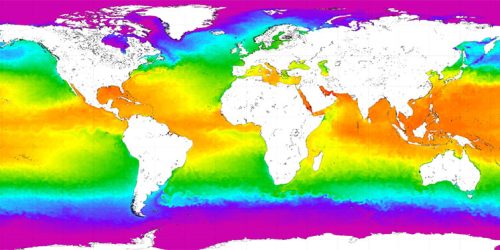The Atlantic Meridional Overturning Circulation (AMOC) is a major mechanism for heat redistribution on Earth and an important factor in climate variability and change. AMOC is projected to decrease in the future in response to anthropogenic warming. In a 2021 article published in Nature Geoscience, led by author L. Caesar, compared a variety of proxy records to reconstruct the evolution of the AMOC since about AD 400. The results revealed that an AMOC slowdown started in the nineteenth century and intensified during the mid-twentieth century.
In a new article, published in the Matters Arising section of Nature Geoscience, a group of scientists highlight possible additional data that suggest that the Atlantic circulation change identified in L. Caesar’s paper is still uncertain. Led by CPO’s Climate Variability and Predictability (CVP) program-funded PI K. Halimeda Kilbourne (UMD-CES), the group analyzed a comprehensive set of palaeoceanographic records that included proxies for temperature, salinity, sea ice, and ocean circulation to reach their conclusion. The researchers also provided some recommendations on how to better capture the circulation’s changes.
For more information, contact Jose Algarin.










